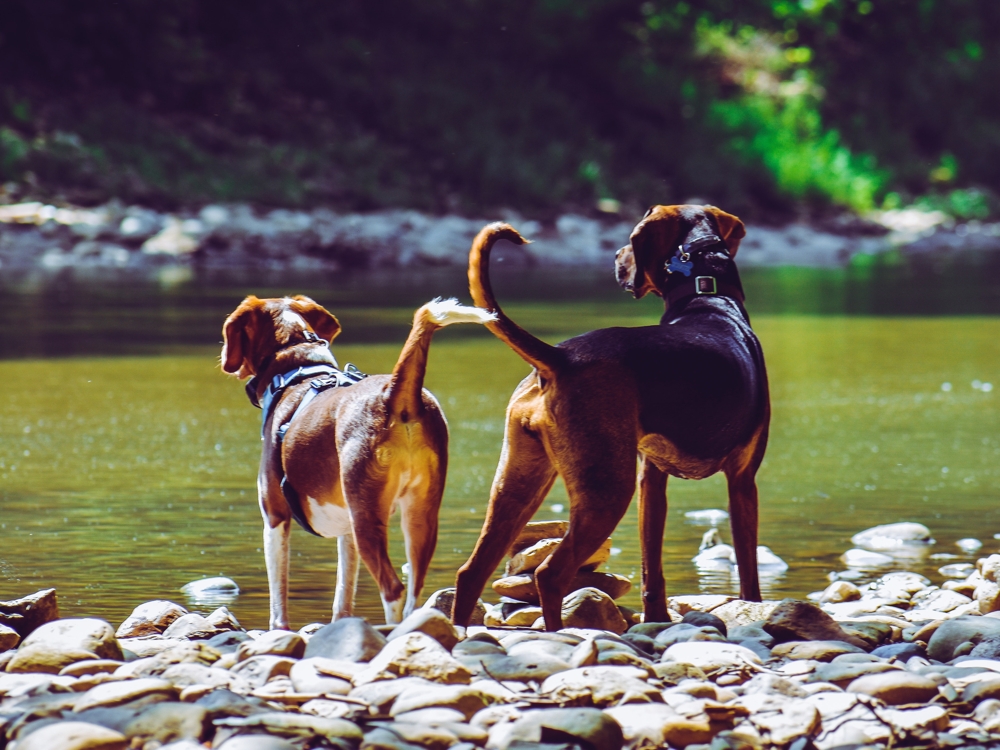When to Take Your Vomiting Dog to the Vet
Share
[Sassy_Social_Share]The first time your pup vomits can be worrying. Is it serious? Has he eaten something poisonous? Does he have a stomach virus? What should you do? When should you call the vet about your vomiting dog?

Most of the time, it isn’t serious. Dogs can be walking hoovers. They gobble up weird things around the house and garden as well as when they are on walks. But sometimes, it can be a true emergency. With a vomiting dog, knowing when to call the vet is crucial.
How to Tell When Your Vomiting Dog Is an Emergency
Here are some signs that suggest your dog is having a serious medical emergency and needs urgent care. If your vomiting dog exhibits any of these other symptoms, call the vet immediately.
- Bloating
- Lethargy
- Weakness
- Blood in Vomit
- Tilting Head
- Staggering
- Diarrhoea
Bloating indicates gastric torsion, which is fatal roughly half of the time. Immediate treatment is your dog’s best hope. If your dog’s belly is swollen and drum-like, call the vet and go.
The other symptoms can suggest a range of problems, and your vet can do a comprehensive exam to figure out what is going on. Some possibilities are poisoning, swallowing something sharp, acute pancreatitis, kidney failure, liver failure, viral infection or bacterial infection.
Poisoning is rarely deliberate, and it should not be ruled out because no one had an opportunity to poison your dog. A dog can be poisoned by eating the carcase of rodent that ate poison, licking its feet after stepping in chemicals such as antifreeze, swiping your chocolate or getting into the trash.
Types of Dog Vomit
It isn’t pretty, but it is important to look at the dog’s vomit. What you see will give your vet valuable clues about why your dog is throwing up. Some key things to notice are listed here:
- Is the vomit chunky, granular, frothy or liquid?
- Can you see bits of the dog’s food in the vomit?
- Do you see any foreign objects, bits of bone or small pieces of plastic for example?
- Is there grass or other plant matter in the vomit?
- Is there fresh blood or dried blood, which looks like coffee grounds?
- What colour is the vomit?
Other Times to Take Your Vomiting Dog to the Vet
Sometimes vomiting indicates your dog is ill and needs to see the vet, but it is not an emergency. Vomiting in dogs can indicate a number of illnesses such as kidney or liver disease, cancer, middle ear problems, meningitis, heat stroke, or a viral or bacterial infection.
If your dog is vomiting and rejecting food, but shows no other signs of illness, it is still a good idea to call the vet. All dogs vomit occasionally, but you notice your dog is vomiting regularly, even if it is every couple of weeks, that indicates a problem. Your dog could be regularly sneaking into something, or it could be that the food you are using does not agree with your dog. Dogs can have food intolerances too. The pure, natural, wholesome recipe of Leader Adult Sensitive includes lamb and potatoes, which can help to minimise skin irritation and digestive upsets.
Some dogs will throw up when they are anxious, over excited or motion sick. Your vet can help with these situations too. They can suggest medications or other approaches to help your dog cope with stressful situations. A vomiting dog only adds to any stressful event, so if you can take measures to prevent it, all the better.
When Not to Worry about Your Vomiting Dog
If your dog throws up their food after eating too quickly and then appears normal and active, that is nothing to worry about if it happens occasionally. If your dog regularly eats too fast, you can try using a puzzle dish. These are designed to make your dog eat slower. You can also break their daily ration of food into more smaller meals. While we humans mostly only vomit when we feel terrible, our dogs are different. It is normal for them to sometimes throw up and then resume whatever they were doing without a bother. If it happens regularly, that is reason to call the vet. But if it happens infrequently and your dog shows no sign of being unwell, that is not reason for concern.
Dogs will also eat grass and then spit up wads of slimy grass in a yellow froth. This is also fairly normal and no cause for alarm – aside for worry about the carpet or furniture! Some dogs will devour rawhide chews too quickly and then vomit up large chunks of rawhide. If your dog does this and then continues behaving normally, don’t panic, but look into other types of treats. If your dog appears to be choking or is also constipated, that merits a call to the vet.
Our dogs can’t tell us in words how they feel, and they are incredibly stoic creatures. Most occasions when a dog vomits are not serious, but it isn’t always easy for pet owners to tell if their vomiting dog is an emergency or is just paying the price for gobbling their food or raiding the bin. When in doubt, it is always best to ring your vet.





